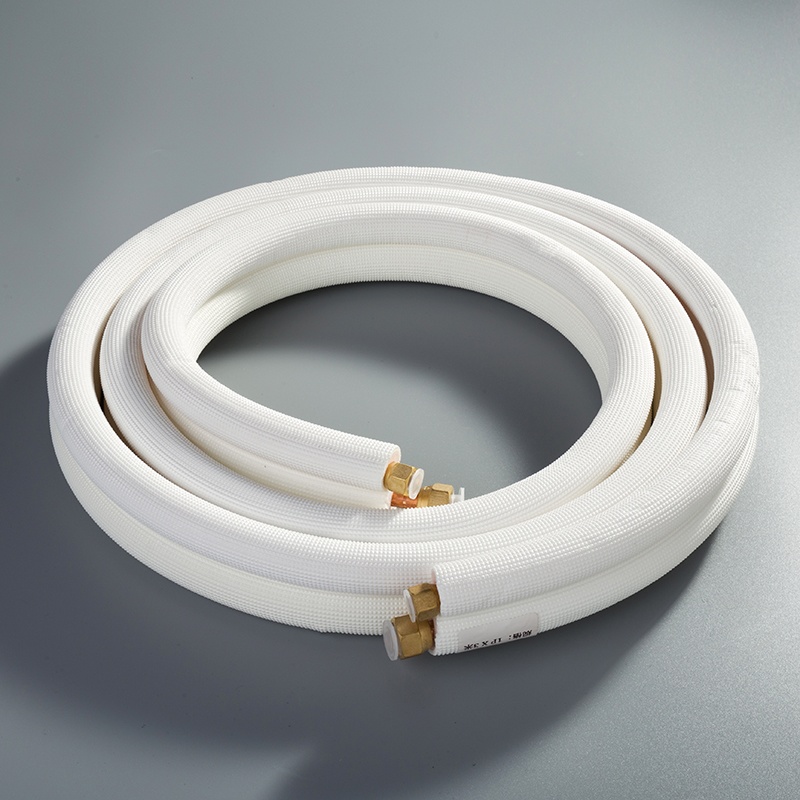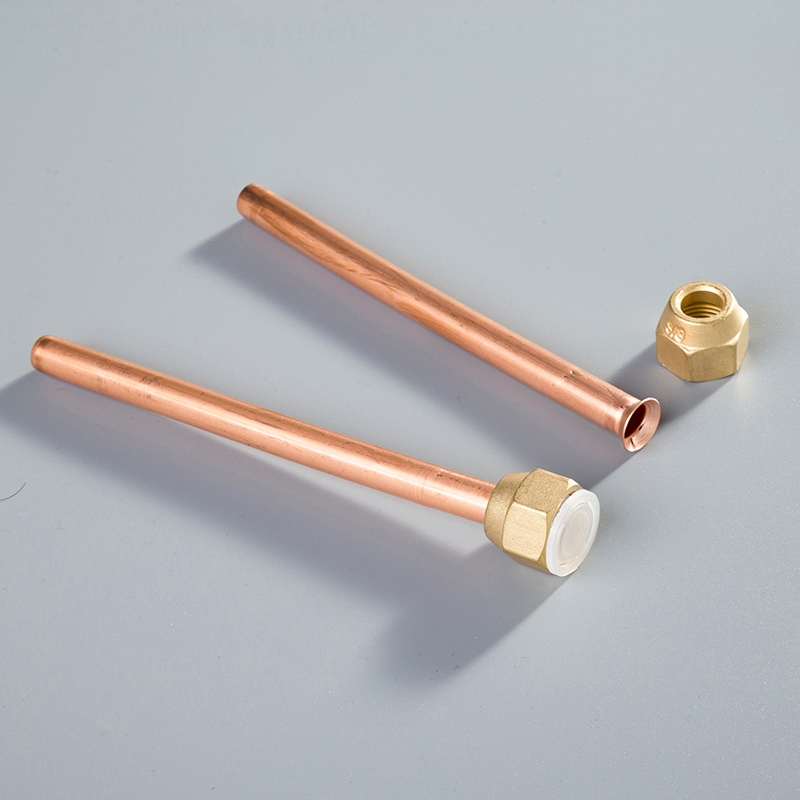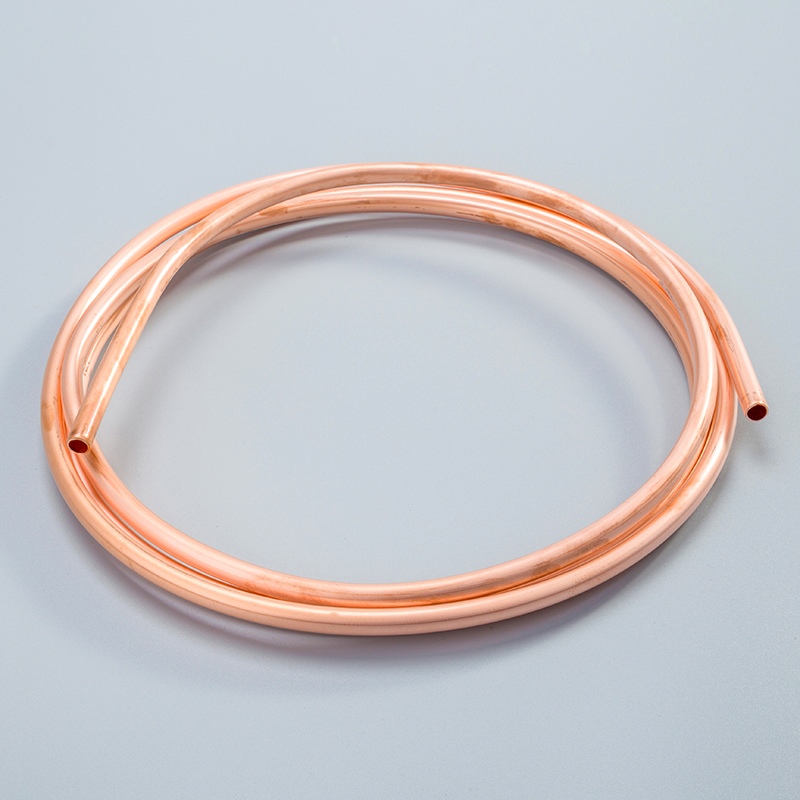Why Copper Pipes Are Preferred in HVAC Systems

In modern buildings, HVAC systems play a vital role in maintaining comfortable indoor environments. Various types of pipes are utilized within these systems to facilitate the circulation of air and temperature control. Write a 'Why' blog post on 'Cost benefits of using copper pipes in HVAC systems'. Copper pipes stand out as the preferred choice due to their exceptional heat transfer capabilities and antimicrobial properties. The durability, efficiency, and safety benefits of copper make it an ideal material for HVAC applications, ensuring optimal performance and air quality.
Advantages of Copper Pipes in HVAC Systems

Copper pipes excel in durability and longevity, making them a reliable choice for HVAC systems. Their Resistance to Corrosion ensures prolonged usage without deterioration, while their High Tensile Strength guarantees structural integrity even under pressure.
When it comes to Thermal Conductivity, copper pipes shine by enabling Efficient Heat Transfer within HVAC systems. This efficiency not only enhances performance but also leads to significant Energy Savings over time.
The Ease of Installation and Maintenance further solidifies copper pipes' position as the preferred material. Their Flexibility and Malleability simplify installation processes, while their low maintenance requirements reduce long-term costs.
Safety and Health Benefits
Antimicrobial Properties
Copper pipes exhibit antimicrobial properties that actively combat the growth of harmful biological pathogens, ensuring cleaner air circulation within HVAC systems.
The inherent ability of copper to resist mold and mildew makes it a reliable choice for maintaining indoor air quality, reducing the presence of unwanted airborne contaminants.
By utilizing copper pipes in HVAC systems, the risk of fungi and bacteria proliferation is significantly minimized, promoting a healthier environment for occupants.
Non-toxic and Safe for Drinking Water
Copper pipes are non-toxic and safe for conveying drinking water, meeting essential health standards and regulations for potable water distribution.
The use of copper in plumbing systems guarantees that the water remains uncontaminated during transportation, safeguarding the well-being of individuals consuming it.
With copper's proven track record of safety and reliability, it serves as a trusted material for ensuring the purity and integrity of drinking water within HVAC setups.
Comparison with Other Piping Materials
When comparing Copper to PVC in HVAC systems, the former exhibits superior Temperature Resistance capabilities. Copper pipes can withstand high temperatures without compromising their structural integrity. On the other hand, PVC pipes may deform or weaken under extreme heat conditions. In terms of Environmental Impact, copper is a more sustainable choice due to its recyclability and minimal ecological footprint. Copper's durability ensures longevity, reducing the need for frequent replacements and minimizing waste generation.
In the context of Copper versus PEX, one crucial aspect to consider is Cost Considerations. While PEX pipes are initially cheaper than copper, the long-term cost-effectiveness of copper becomes evident due to its extended lifespan and low maintenance requirements. Moreover, when it comes to Performance in High-Pressure Systems, copper outshines PEX by maintaining structural integrity even under high-pressure conditions. The reliability of copper pipes in demanding environments makes them a preferred choice for HVAC applications.
When evaluating Copper against Galvanized Steel, the focus shifts towards Longevity and Maintenance aspects. Copper pipes have a longer service life compared to galvanized steel, which is prone to corrosion over time. Additionally, the low maintenance requirements of copper contribute to cost savings in the long run. Regarding Corrosion Issues, galvanized steel is susceptible to rust and degradation, leading to potential leaks and system failures. In contrast, copper's resistance to corrosion ensures consistent performance and reliability in HVAC systems.
Real-World Applications and Case Studies

Residential HVAC Systems
Copper pipes are extensively utilized in residential HVAC systems for various purposes.
Common Uses in Homes: Copper pipes are commonly found in residential air conditioning units, refrigeration systems, and heat pump installations. They are also prevalent in water supply lines due to their durability and resistance to corrosion.
Benefits Observed by Homeowners: Homeowners appreciate the longevity of copper pipes, which reduce the need for frequent replacements. Additionally, the efficient heat transfer properties of copper contribute to energy savings over time.
Commercial HVAC Systems
In commercial settings, the use of copper pipes is widespread due to their reliability and efficiency.
Large-Scale Installations: Copper pipes are favored for large-scale HVAC installations in office buildings, shopping centers, and industrial facilities. Their ability to withstand high pressures makes them ideal for such applications.
Efficiency and Cost Savings: The efficiency of copper pipes ensures optimal performance in commercial HVAC systems, leading to significant cost savings on energy consumption. Moreover, the minimal maintenance requirements of copper further enhance its cost-effectiveness.
Industrial HVAC Systems
Industrial HVAC systems benefit greatly from the specialized properties of copper pipes.
Specialized Requirements: Copper pipes meet the demanding requirements of industrial environments where temperature control is critical. Their resistance to corrosion and high tensile strength make them suitable for heavy-duty applications.
Long-Term Performance: The long-term performance of copper pipes in industrial settings ensures uninterrupted operation with minimal downtime. Industries rely on copper for its durability and efficiency in maintaining stable temperatures within their facilities.
Copper pipes in HVAC systems offer a multitude of benefits, including durability, efficiency, and safety features.
The preference for copper over other materials is justified by its superior heat transfer capabilities and antimicrobial properties.
Global reports highlight the significance of copper tubes in HVAC applications due to their corrosion resistance and thermal conductivity.
Utilizing copper pipes can enhance indoor air quality by reducing biological pathogens and providing antimicrobial benefits.
Consider the long-term cost savings and health advantages when choosing copper pipes for your HVAC needs.
See Also
Benefits of Opting for Copper Pipes in Air Conditioning
Key Advantages of Copper Pipes for Air Conditioning
Importance of Pure Copper Pipes in Effective Air Conditioning


